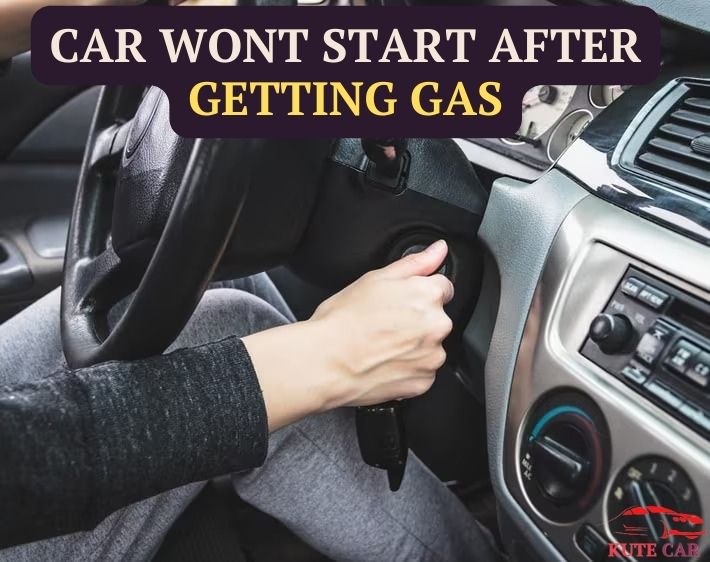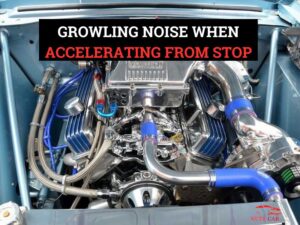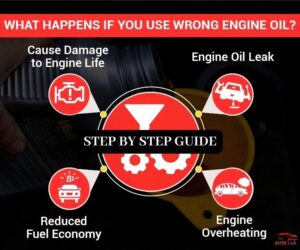Have you ever experienced the frustration of getting gas for your car only to find that it sputters and struggles to start afterward? This is a common problem that many drivers face, and it can be a cause for concern. When a car wont start after getting gas, it can indicate a problem with the fuel system. Ignoring this issue can lead to further damage and potentially expensive repairs.
In this blog post, we will explore the possible causes of car sputtering when starting after getting gas, the symptoms to look out for, and how to diagnose and fix the problem. So, if you’ve ever found yourself struggling to start your car after a trip to the gas station, keep reading to find out what might be causing the issue.
Possible Causes of a Car Not Starting After Refueling
One of the possible causes of a car not starting after refueling is pumping gas with the car on. This is a common mistake that many drivers make, either out of habit or because they are in a hurry. When gasoline is pumped into a car with the engine running, it can cause several issues that can lead to starting problems. The fuel system is designed to work in a specific way, and any deviation from this can cause problems. Here are some of the ways that pumping gas with the car on can affect the fuel system and cause starting issues:
1) Insufficient Fuel Reaching the Engine
The fuel system cannot function properly when the car is running while pumping gas. This can cause the fuel to flow back into the filler neck and not into the gas tank, resulting in insufficient fuel reaching the engine. This can lead to starting problems and poor engine performance.

2) Vapor Lock
When the car is turned off, the fuel pump stops working, and the pressure in the fuel line drops. When the engine is started again, the fuel pump has to work harder to build up pressure, which can cause a vapor lock. Vapor lock occurs when the fuel in the line turns to vapor and blocks the fuel flow to the engine. This can cause starting problems and stalling.
3) Damage to the Fuel System
Pumping gas with the car on can cause damage to the fuel system, such as a damaged fuel pump or fuel filter. This can cause starting problems and poor engine performance.
Signs and Symptoms of Each Cause
There are several potential causes of a car stopped accelerating while driving, and each cause can have different signs and symptoms. Two possible causes are bad gas in the car and the car starting and dying immediately unless given gas. Here are the signs and symptoms of each cause:
1. Bad Gas in the Car
Sometimes, gasoline can become contaminated or mixed with water, which can cause problems in the fuel system. If bad gas is the cause of the starting problem, you may notice the following signs and symptoms:
- The engine runs rough or stalls
- The car jerks or hesitates when accelerating
- The engine misfires
- The car has reduced power or acceleration
- The car emits a strong odor of gasoline
- If you suspect that bad gas is the cause of the starting problem, it is essential to have the fuel system inspected by a qualified mechanic. -They can drain the contaminated fuel and replace it with fresh gas.
2. Car Starts Then Dies Immediately Unless Given Gas
If your car starts but dies immediately unless given gas, this can indicate a problem with the fuel system. The following signs and symptoms may be present:
- The car idles rough or stalls
- The engine misfires or backfires
- The car hesitates or surges during acceleration
- The car emits a strong odor of gasoline
- This can be caused by several issues, including a clogged fuel filter, a faulty fuel pump, or a problem with the engine’s sensors. It is essential to have the fuel system and engine checked by a qualified mechanic to determine the exact cause of the problem.
Bad gas in the car and the car starting and then dying immediately unless given gas are two possible causes of a car not starting after refueling. It is essential to pay attention to the signs and symptoms to identify the cause of the problem and take appropriate action. If you experience any of these symptoms, have your car inspected by a qualified mechanic to diagnose and fix the issue.
How to Diagnose the Problem
If your car wont start after getting gas, it can be a frustrating and potentially dangerous problem. It is essential to diagnose the situation to determine the cause and take appropriate action to fix it. Here are some steps you can take to diagnose the problem:
1. Check the fuel level: It is possible that the gas gauge is not accurate and the car is running out of gas. Check the fuel level and add more gas if needed.
2. Check for leaks: Look for any signs of gas leaks around the fuel tank, fuel lines, or fuel injectors. If you see any signs of a leak, do not attempt to start the car and have it towed to a mechanic.
3. Check the fuel cap: Make sure the fuel cap is tightly secured. A loose fuel cap can cause the “check engine” light to come on and lead to starting problems.
4. Check the battery: Make sure the battery is fully charged and in good condition. A weak battery can cause starting problems and contribute to stalling or sputtering.
5. Check the fuel system components: Check the fuel filter, pump, and injectors for any signs of damage or wear. These components can become clogged or fail over time, causing starting problems and stalling.
6. Check the engine sensors: The engine sensors can become damaged or fail, causing starting problems and stalling. Have the sensors checked by a qualified mechanic.
7. Check for codes: If the “check engine” light is on, have the car’s computer system scanned for diagnostic codes. These codes can help identify the cause of the problem.
How to Fix the Problem a Car Wont Start After Getting Gas
If your car struggles to start or has trouble starting after getting gas, it can be a frustrating problem. However, there are several steps you can take to fix the issue. Here are some tips on how to fix the problem:
1. Replace the fuel filter
A clogged fuel filter can cause starting problems and reduce the flow of gasoline to the engine. Have the fuel filter replaced by a qualified mechanic.
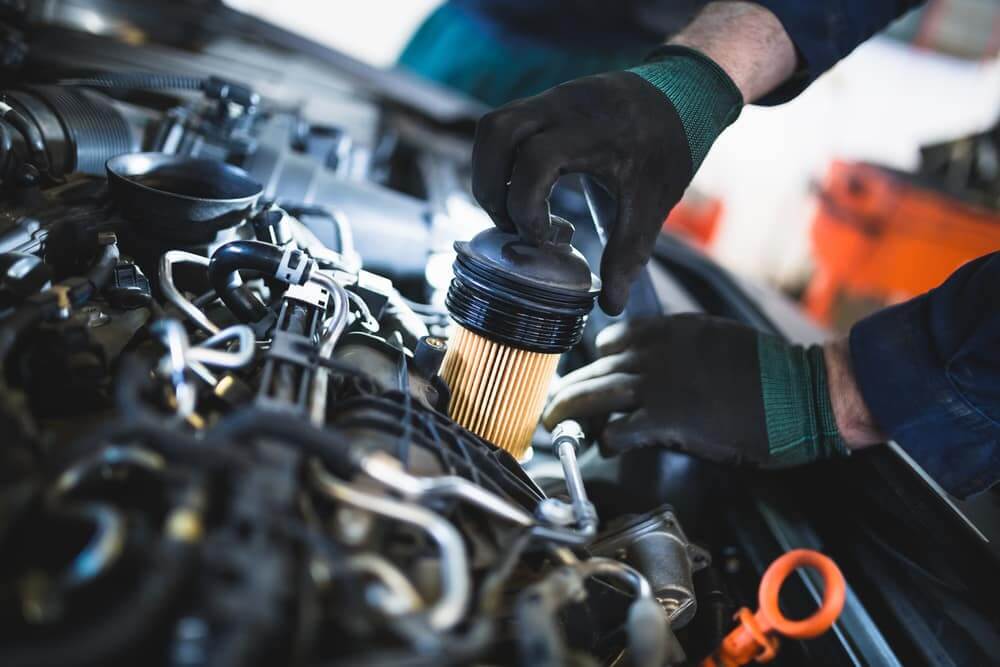
2. Clean the fuel injectors
Over time, they can become clogged with dirt and debris, reducing effectiveness. Have the fuel injectors cleaned by a qualified mechanic to improve their performance.
3. Check the spark plugs
The spark plugs ignite the fuel in the engine and can become dirty or worn over time, reducing their effectiveness. Have the spark plugs checked and replaced if necessary.
4. Check the battery
A weak or dead battery can cause starting problems. Have the battery checked and replaced if necessary.
5. Check the ignition system
The ignition system includes the starter, alternator, catalytic convertor, and other components that help start the engine. Have the ignition system checked by a qualified mechanic and replaced if necessary.
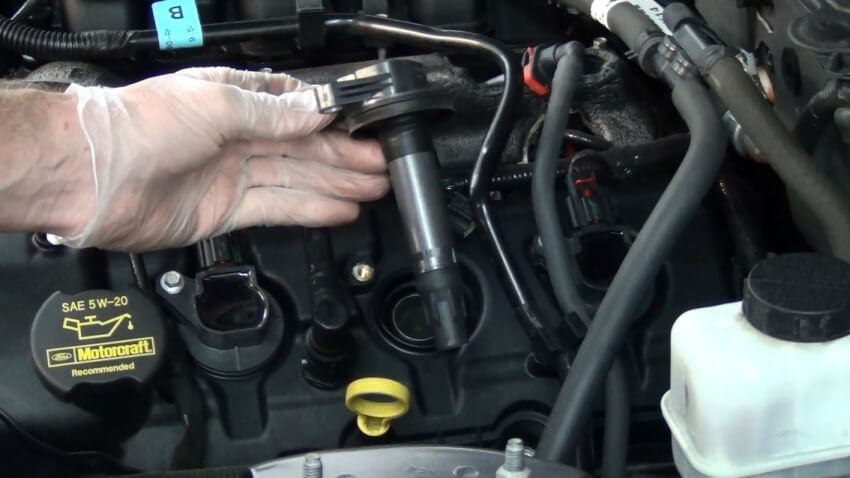
Conclusion
Dealing with a car that won’t start after getting gas can be frustrating, but there are steps you can take to diagnose and fix the problem. From checking the fuel system and ignition components to maintaining the battery and engine, a qualified mechanic can help identify the root cause of the issue and take appropriate action to fix it.
In conclusion, dealing with a car not starting after getting gas requires maintenance and careful refueling practices. By taking the necessary steps to prevent starting issues and addressing any problems that arise, you can keep your car running reliably and safely for years.
FAQ Regarding A Car Wont Start After Getting Gas
Q.1) Why does my car not start after getting gas?
There are several reasons why a car may not start after getting gas. Some causes include a faulty fuel pump, a clogged fuel filter, or a loose gas cap.
Q.2) Can a clogged fuel filter cause my car not to start after getting gas?
Yes, a clogged fuel filter can prevent the fuel from reaching the engine, causing the car not to start or run poorly.
Q.3) Can a bad fuel pump cause my car not to start after getting gas?
Yes, a faulty fuel pump can prevent the fuel from reaching the engine, causing the car not to start or run poorly.
Q.4) Can weather conditions affect my car not starting after getting gas?
Yes, extreme weather conditions, such as extreme cold or heat, can affect the fuel system.

